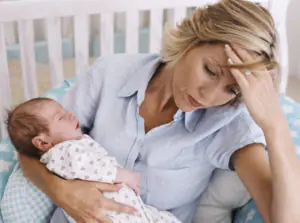The period of breastfeeding is a special time for a woman. In addition to a lot of pleasant sensations, it is also a great responsibility. A nursing mother should carefully monitor her diet, since in case of poisoning or the development of an intestinal infection, not only she herself, but also the child will suffer. What to do if a breastfeeding woman is poisoned? Is it possible to continue feeding the baby?
The content of the articleCauses of poisoning during hepatitis B
Poisoning during breastfeeding (BF) can occur due to infection with pathogenic bacteria or from eating low-quality foods.
Foodborne illness develops due to the action of toxins that enter the gastrointestinal tract from low-quality products. The cause of poisoning most often are fruits and vegetables.
Intestinal infections occur as a result of infection with opportunistic and pathogenic microorganisms: Staphylococcus aureus, Escherichia, Salmonella, Escherichia coli or Shigella (causative agents of dysentery). You can become infected with intestinal infections by drinking unboiled water, poorly washed fruits, or through household contact.
When breastfeeding, such poisoning is not uncommon. During this period, the woman’s body is greatly weakened: pregnancy and childbirth caused a decrease in immunity, and lack of sleep and rest led to a general deterioration in health. Because of this, poisoning can occur even with a slight deterioration in the quality of products or when opportunistic microorganisms, such as staphylococcus or E. coli, enter the body.
Symptoms of poisoning during lactation
Food poisoning during hepatitis B manifests itself in different ways, depending on the causes of the pathology and the severity of the disorder.
Poisoning can be suspected if the following signs appear:
- Unpleasant sensations that occur 2-6 hours after eating. The timing of symptoms depends on the amount and type of food eaten, as well as the time of year. In warm weather, symptoms of poisoning occur much faster, as pathogenic microorganisms multiply more actively.
- Abdominal pain is the main symptom of the pathology. The pain is usually mild. They are localized in the lower abdomen, in the intestines, and may be accompanied by increased gas formation.
- , frequent up to 4-10 times a day, is typical for intestinal infections. The stool may contain impurities and undigested food debris.
- Nausea and vomiting.
- Increase in body temperature to 37-38 C° degrees.
- Weakness, general malaise.
If blood appears in the stool (fresh or in the form of streaks), sharp acute pain in the abdomen, or repeated vomiting, you should immediately consult a doctor!
Is it possible to breastfeed if poisoned?
There is no clear answer to the question of whether it is possible to breastfeed a child with food poisoning. It all depends on the severity of the disorder, on the pathogen that caused the disease, and on the general condition of the woman.
According to pediatricians, food poisoning of a woman during lactation, subject to personal hygiene rules, will not affect the child’s condition. Toxins and pathogenic bacteria from the intestines will not pass into breast milk. The risk of a child becoming infected with hepatitis B increases, but not much, if the mother carefully monitors the cleanliness of her hands and breasts.
Intestinal infection in pregnant women is much more dangerous: Although toxins cannot penetrate the blood-brain barrier, the deterioration of a woman's condition can become dangerous for the fetus. Poisoning due to hepatitis B no longer poses such a danger to the child.
Breastfeeding during poisoning is allowed if:
- the woman feels well;
- Abdominal pain, nausea and vomiting are not expressed;
- the mother's body temperature is not higher than 38-38.5 degrees;
- a woman does not lose much fluid and nutrients through vomiting and diarrhea, and can also replenish them. She does not feel sick from water or food, and while following a diet, she can receive adequate nutrition and drink at least 2-2.5 liters of fluid per day.
You cannot breastfeed a child who has been poisoned if:
Breastfeeding if the mother is poisoned should be under the supervision of a doctor. Only a specialist will be able to accurately assess the patient’s condition and understand when it is necessary to supplement treatment with antibacterial drugs!
What can a nursing mother eat if she is poisoned?
If it was decided to treat poisoning during breastfeeding at home, you need to think about the diet of the nursing mother. Food should be easily digestible, healthy and nutritious.
To maintain lactation and not burden the intestines, it is recommended:
- Avoid raw vegetables and fruits.
- Give preference to light, lean dishes - soups with vegetable broth, porridge with water, boiled vegetables and steamed meat.
- Eliminate all fried, fatty, sweet, canned foods.
- Drink more fluid - at least 2 liters per day.
- Stop consuming dairy products.
How to reduce the risk of transmitting infection to a child during lactation?
To reduce the risk of transmission of infection to the baby, nursing mothers need to follow preventive measures:



